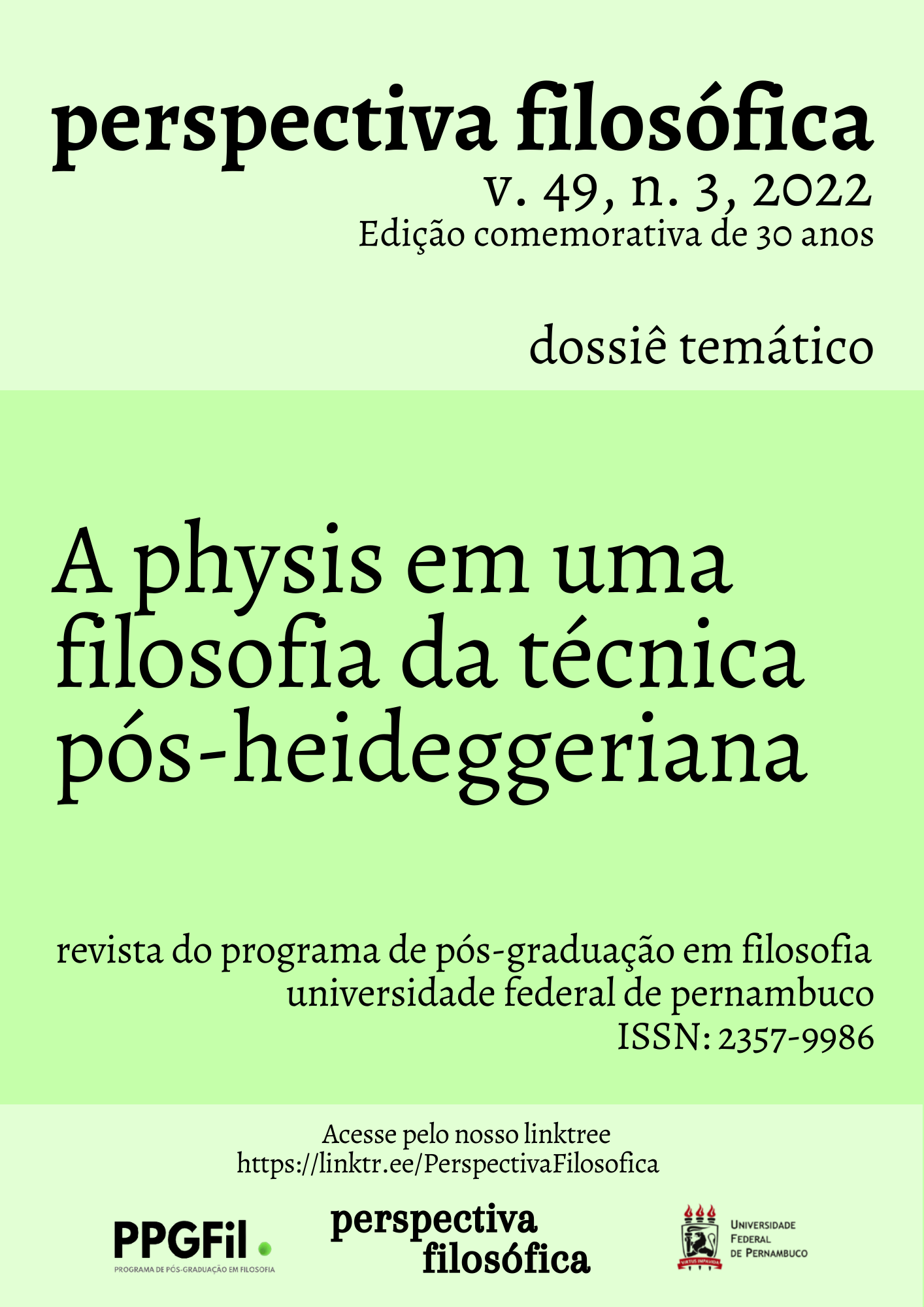Reza Negarestani: on inhumanism and the coloniality of thought
DOI:
https://doi.org/10.51359/2357-9986.2022.249982Keywords:
inhumanism, neorationalism, General Artificial Intelligence (IAG), coloniality, Reza NegarestaniAbstract
The objective of the article is to present the neorationalist formulations of the Iranian philosopher Reza Negarestani. From its inhumanism, it is possible to glimpse the reissue of the emancipatory project through the thesis of greater cognitive autonomy (theoretical and practical) inscribed in the semantic and linguistic sociability of a rational community (whether that of humans or machines). The ultimate end of emancipation goes on to the continuous exercise of the liberation of intelligence through the expansion of intelligibility. That is to say, towards an inhuman intelligence that can be artificialized. Starting with an inversion, I begin the article with a text on the state of art of the de-colonial in order to try to understand what is the decolonization of thought to which Reza Negarestani refers in his program of expansion of intelligence. The second part is directed to the attempt to understand the referred program and briefly offers some considerations of the negarestanian adoption of the principiological prerogatives of the Enlightenment epistemic soil, in order to endorse the thesis on a permanent program of coloniality of thought.
References
BENSUSAN, Hilan. “zwischen Strom und Gestein”. Os humanos e a pan-política dos vírus (2020a).
BENSUSAN, Hilan. Geist and Ge-Stell. Beyond cybernetic convergence of intelligence and the unity of normativity (2020b).
BRAIDOTTI, Rosi. The Posthuman. Cambridge, Polity Press, 2013.
CASTRO-GÓMEZ, Santiago; Grosfoguel, Ramon, editores. El girodecolonial: Reflexiones para uma diversidad epistémica más Allá del capitalismo global. Bogotá: Siglo del Hombre. Universidad Central; Instituto de Estudios Sociales Contemporáneos; Instituto Pensar, 2007.
DUSSEL, Enrique. Europa, modernidade e eurocentrismo. In: LANDER E, organizador. A colonialidade do saber: eurocentrismo e ciências sociais. Buenos Aires: CLACSO, 2005. p. 55-70.
FEDERICI, Silvia. O Calibã e a Bruxa: Mulheres, Corpo e Acumulação Primitiva. São Paulo: Elefante, 2017.
FIRESTONE, Shulamith. A Dialética do sexo. Coleção Bolso.
LE, Vincent. Spirit in the Crypt Negarestani Vs Land. Cosmos and History: The Journal of Natural and Social Philosophy, vol. 15, no. 1, 2019.
MBEMBE, Achille. A universalidade de Frantz Fanon. Disponível em: https://profedmarcb.files.wordpress.com/2018/06/mbembe-achille-a-universalidade-de-frantz-fanon.pdf
MIGNOLO, Walter. Histórias locais/projetos globais: colonialidade, saberes subalternos e pensamento liminar. Belo Horizonte: Editora da UFMG, 2003.
MIGNOLO, Walter. Introducción. In: Henry, Paget. El color de la razón. Henry Paget; Santiago Castro Gómez; Eze Chukudi; Compilado por Walter Mignolo – 1ª Ed. – Buenos Aires: Del Signo, 2008.
NEGARESTANI, Reza. Intelligence and Spirit. Urbanomic, 2018.
RIVERA, Cusicanqui Silvia. Ch’ixinakaxutxiwa. Una reflexión sobre prácticas y discursos descolonizadores. Buenos Aires: Tinta Limón, 2010. Pinturas. 80 pp.
SOUSA SANTOS, Boaventura de. O fim do império cognitivo: as afirmações das epistemologias do Sul. Belo Horizonte: Autêntica Editora, 2019.
VALENTIM, Marco Antonio. Extramundaneidade e sobrenatureza: ensaios de ontologia infundamental. Cultura e Bárbarie, 2018.
VATTIMO, Gianni. O fim da modernidade; niilismo e hermenêutica na cultura pós-moderna. São Paulo: Matins Fontes: 1996.
VIVEIROS DE CASTRO, Eduardo. Metafísicas canibais: Elementos para uma antropologia pós-estrutural. São Paulo: Cosac Naifiy, 2015.
Downloads
Published
Issue
Section
License
A Revista Perspectiva Filosófica orienta seus procedimentos de gestão de artigos conforme as diretrizes básicas formuladas pelo Conselho Nacional de Desenvolvimento Científico e Tecnológico (CNPq). http://www.cnpq.br/web/guest/diretrizesAutores que publicam nesta revista concordam com os seguintes termos:
Os autores mantém os direitos autorais e concedem à revista o direito de primeira publicação, sendo o trabalho simultaneamente licenciado sob https://creativecommons.org/licenses/by/4.0/deed.pt_BR que permite o compartilhamento do trabalho com reconhecimento da autoria e publicação inicial nesta revista.
Os autores têm autorização para assumir contratos adicionais separadamente, para distribuição não-exclusiva da versão do trabalho publicada nesta revista, com reconhecimento de autoria e publicação inicial nesta revista (Consultar http://opcit.eprints.org/oacitation-biblio.html).

Esta revista está licenciada com uma Licença Creative Commons Atribuição 4.0 Internacional.













